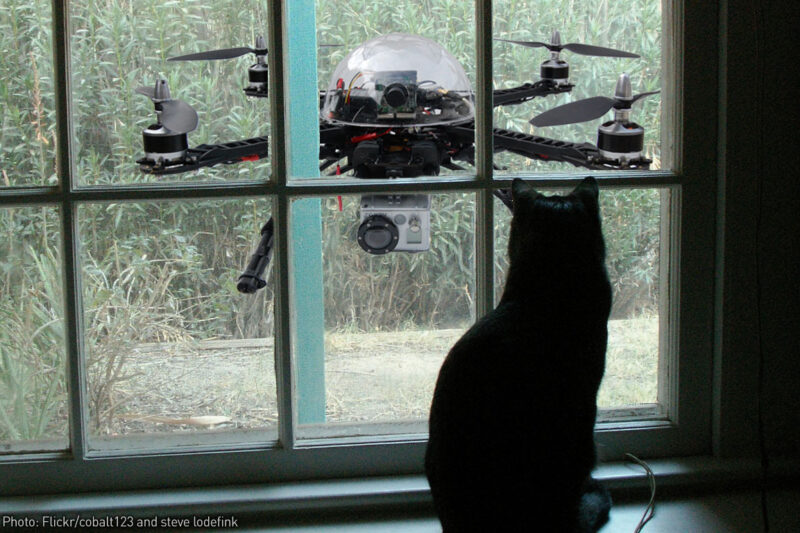
The privacy implications of drones continue to raise concern around the country. Since our 2011 report and before, we have been warning about the potential privacy implications of this technology. Mainly, we’ve focused on the danger that they will be used in systems of mass suspicionless surveillance of entire cities and towns. But there is also a lot of discussion around the country—and some actual legislative efforts—to regulate private-sector drones.
While private drones do definitely raise privacy issues, they are a separate set of issues, and we have not called for any privacy regulation of private drones at this time. This is for several reasons:
- It remains to be seen what privacy invasions will actually emerge as real problems, and what won’t. There will inevitably be episodes, but it’s not clear where we will see abiding problems that demand regulatory solutions, unlike police and government use of drones for mass surveillance, which is far more predictable and, absent action to the contrary, probably inevitable.
- It’s less clear not only what privacy invasions we’ll see, but the extent to which they will be already covered by existing laws (such as trespassing, nuisance, and “peeping tom” statutes, and privacy torts).
- Unlike with government drones, First Amendment photographers’ rights issues come into play with private drones, which complicates the issue.
- There may be a flowering of private-sector innovation around drones, including many uses that bring not only conveniences and fun, but also that help Americans exercise and protect their civil liberties. Although we may be open to specific privacy regulations around private drones if the need becomes apparent, we don’t want to unnecessarily inhibit innovation.
That is why for now we’re taking a “wait and see” stance when it comes to privacy regulation of private-sector drones. Obviously when it comes to the safety regulation of drones, we have no problem. Safety is not our area of expertise, and we leave it to others to figure out what is needed in that area—and to figure out the right balance between safety and commerce. There’s no civil liberties dog in that fight—provided, at least, that safety is not being used as a pretext to prevent photography, as we’ve , or for other illegitimate purposes.
Update (7/16/15):
See this followup piece on regulations being proposed in New Jersey and their First Amendment implications.


